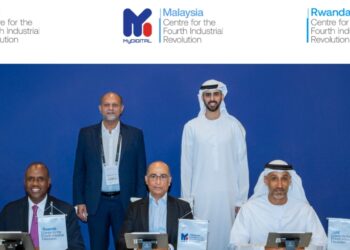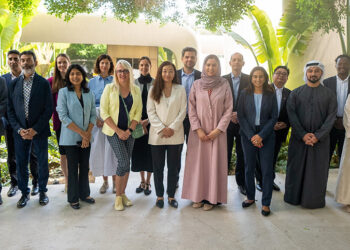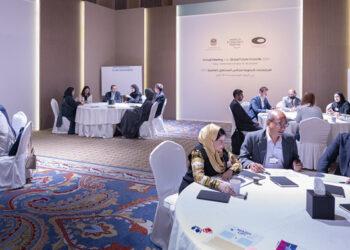The Centre for the Fourth Industrial Revolution UAE (C4IR UAE), managed by Dubai Future Foundation (DFF), has named LuxAI. winner of its Smart Toys Competition. The Luxemburg-based company competed to help solve challenges faced by children of determination in their learning and integration into society.
LuxAI vision focuses mainly on disruptive robotic solutions for education and healthcare, captured the jury’s attention with its QTrobot, an expressive humanoid social robot for children with special needs and autism.
The winner will receive support from Dubai Future Foundation (DFF) and Abu Dhabi’s Early Childhood Authority (ECA) in developing their toy concepts and prototypes, and piloting them with relevant entities in the UAE.
Smart Toys Competition
Launched earlier in 2021 in partnership with the World Economic Forum (WEF), the Abu Dhabi Early Childhood Authority (ECA) and the National Program for Artificial Intelligence, the renowned competition called on local and global startups as well as early-stage SMEs that design smart toys powered by artificial intelligence (AI). Companies competed in four categories; namely Health and Nutrition, Family Support, Child Protection, and Early Care and Education.
Amongst top three winners in the competition were SmartLife Robotics and Amaisys Technologies S.L.U; chosen by an international panel of expert judges, comprising representatives of WEF, the National Program for Artificial Intelligence, ECA, Dubai Future Accelerators (DFA) and C4IR UAE out of 30 applicants globally, that presented innovative solutions.

On this occasion, Professor Klaus Schwab, Founder and Executive Chairman of the World Economic Forum, said: “AI-powered toys have tremendous potential benefits for children’s learning, play, and growth; the World Economic Forum, launched the Generation AI project that focuses on responsible and innovative AI for children and youth. We believe that smart toys should be designed ethically and responsibly to protect, educate, and empower children.
He added; “With the rapid pace of technological change around the world, even toys are quickly changing. Artificial intelligence is transforming the world and also transforming children’s toys and childhood itself.”

HE. Khalfan Belhoul, CEO of the Dubai Future Foundation (DFF), emphasized the role of the Smart Toy Competition to encourage innovation in artificial intelligence (AI), which will enhance efforts to design solutions that empower, engage children of determination and help them reach their developmental goals.
Belhoul said: “The competition provides an ideal platform for building synergies with innovators and creators, especially AI solution developers, with the aim of designing the future, promoting a culture of innovation and entrepreneurship, facilitating knowledge transfer and leveraging future tools to develop effective solutions to the challenges facing vital sectors, such as education, health and community inclusion.”

On her part, Her Excellency Sana Mohamed Suhail, Director General at the Abu Dhabi Early Childhood Authority, praised the noteworthy efforts the Dubai Future Foundation and the UAE Center for the Fourth Industrial Revolution to identify and empower companies working on the enhancement of children’s wellbeing specifically, children of determination.
H.E. touched on the importance of promoting collaborations with unique interventions working at the intersection of early childhood development and safe technology, noting that these efforts can enhance access to innovative tools and practices — enriching the developmental journeys for the children of Abu Dhabi and transforming people’s way of thinking to the needs of young children and address them.
The Polish start-up; SmartLife Robotics, specialises in building AI-powered robots and toys that boost children’s cognitive development, presented KODI 2.0, a robotic teacher’s assistant that could perform various tasks autonomously and teach children in a home environment. On the other hand, Spanish Company; Amaisys Technologies S.L.U. dedicated to the design, development and integration of exponential technologies, entered the competition with RAINA, an AI toy framework aiming to improve the progress of TEACCH methods for children with autism and communication challenges. TEACCH is an evidence-based educational program centred around visual learning.




